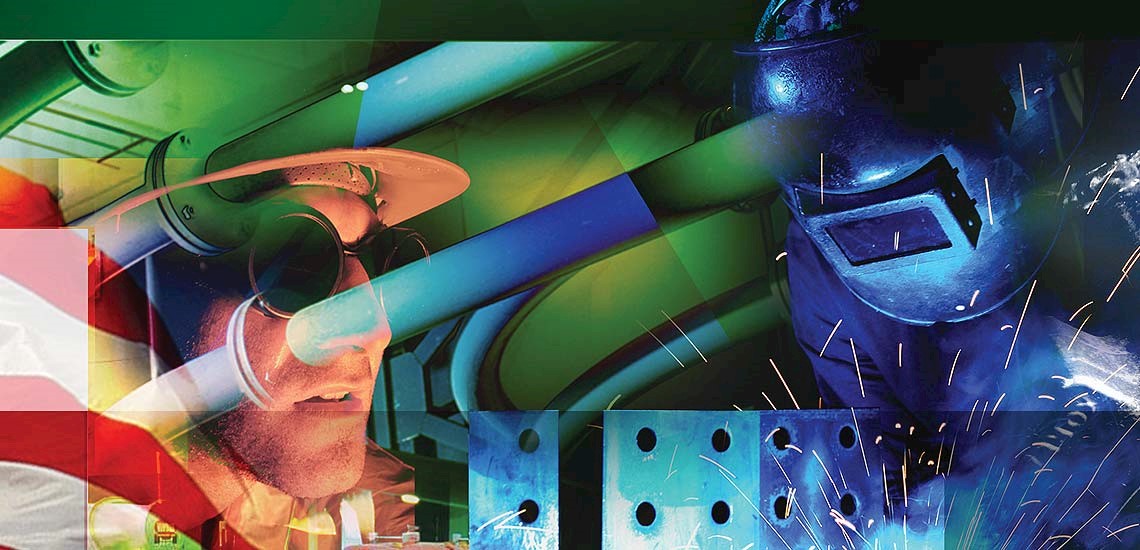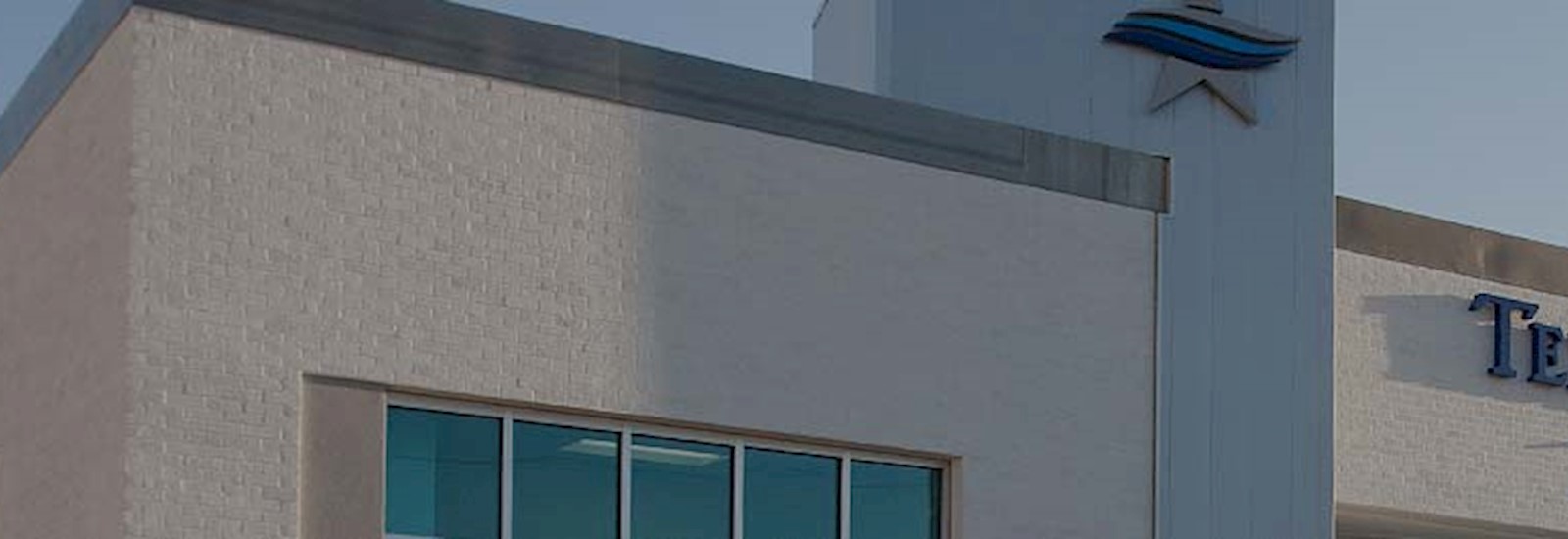
This past May marked the ninth anniversary of Texas Security Bank. To say it went by in the “blink of an eye” is an understatement. Our teams’ journey has been amazing and rich. Often, I am asked “How did you come up with the idea to start a bank?” A difficult question to answer succinctly. The short answer is – I am not sure it was my idea, because the “idea” was as much a process as the execution itself.
This is my attempt at an explanation. When I was in my late 30’s and still searching for my “real” purpose in life, a business mentor recommended the book Visioneering by Andy Stanley. Even though it took a long time to process the information, I enjoyed the book. It wasn’t until we started the bank that I realized the profound truth held within the book. Visioneering, according to the author, is “A clear mental picture of what could be, fueled by the conviction of what should be.” We all have ideas. They come in and out of our head on a regular basis. Do you ever wonder where they come from? Or, why they keep coming? How can we determine which ideas should be acted upon? These are important questions to ponder.
Sometimes dreams, visions and ideas are divinely inspired. I believe this to my core. Stanley outlines ways to determine which ones may be so. First, if the vision takes your breath away and your initial thought is to run away and say, “I could never do that”, it might be divinely inspired. Our Creator is a big thinker – the biggest – and He enjoys leaving little doubt on who to credit once the dragon is slayed. Next, if the idea or vision transitions to a never-ending nagging thought – literally a burden, it might be divinely inspired. After processing the idea through prayer and meditation, wise counsel, circumstances and time in His word, if you sense that not acting on the vision would be kin to disobedience, it might be divinely inspired. Finally, a common thread of divinely inspired visions is the fact they often involve using your unique gifts and talents in service to other people.
My banking career consists of three distinct periods. The first 15 years were spent at a large money-center bank. Slowly, I progressed from an entry-level credit analyst to eventually managing a group of bankers focused on middle market companies. At that time, middle market was defined as operating companies with revenue between $20 million and $500 million. These companies were professionally managed and often publicly traded. Typically, management teams were well-educated with good business acumen and usually hired by an owner or board of directors. The experience provided exposure to hundreds of different companies - each with unique approaches to all the business disciplines – some successful and some not so much, but all valuable. In retrospect, the relationship between customer and bank was sometimes a bit sterile. Still, this was a great experience.
In April of 2003, I had the opportunity to join a bank that moved into Texas from another state through acquiring community banks in the Dallas and Houston metro areas. Initially, I was President of a single location in east Dallas – focused on business banking. Business banking or owner-managed businesses are companies with less than $20 million in revenues usually family-owned and often founded and operated by the owner. Eventually, I became responsible for four banks in Dallas and three in Houston.
Lending money to these companies posed greater risk than middle market companies because they are entrepreneurs. The business sophistication of the owners and management was often less. Financial reporting quality and timeliness was usually lacking. Customer and vendor concentrations are high. Weak to no cash flow forecasting ability. Inappropriately structured balance sheets. It was messy and I loved it for two primary reasons. The first reason was because, we genuinely believed we could help them. Secondly, these entrepreneurs all have inspirational, breath-taking Free Enterprise stories.
I thought I knew what Free Enterprise meant because in college and graduate school I took economics classes. However, there is nothing that compares to seeing it in action. These men and women had a dream – a dream for what could be, fueled by the conviction of what should be. Talk about sacrifice. To start their business, they put their life savings and reputations at risk. They went without pay, funded payroll on their credit cards, maxed out their credit cards, worked for years without vacation, missed little league games, recitals and much more. This was sacrifice and risk taking on the highest level. Along the way, I realized this segment of the economy – companies with less than 20 employees – contributes to most of the net job creation and pay most of federal income tax. Is there any government-created social program that can hold a candle to a job? Of course not.
And yet these Champions of Free Enterprise are underappreciated and devalued. Today, these entrepreneurial warriors are often mocked by presidential candidates. “If you’ve got a business – you didn’t build that. Somebody else made that happen.” Oh really? “Don’t let anybody tell you that, it’s corporations and businesses that create jobs.”
The question that was on my mind and in my heart, was who will Elevate these Champions of Free Enterprise? What if there was a bank whose focus and mission was to Elevate the Champions of Free Enterprise? A bank whose entire product and service offering was to support their sacrifice and efforts. A bank that provided continuing education to business owners in key business disciplines needed to grow their enterprise in a safe and sound manner. What if the banks’ bankers were well-trained on running businesses and could also be great business people? Business people that just happen to be bankers. I imagined what a great resource, this type of bank would be to the entrepreneur. My never-ending nagging thought had become a burden.
In April of 2007, a handful of us left a perfectly good, well-paying job in order stop a nagging burden. We wrote the business plan, formed an organizing group, obtained regulatory approval, and raised capital. We opened our doors on May 5, 2008 – the start of the last recession and banking crisis. Genius, right? At times, it has been challenging, even scary, but mostly, it has been a wonderful journey. There has always been a peace and confidence knowing that we’ve been in the center of God’s will. We know we are doing good work for a greater purpose. Mark Twain said, “The two most important days of your life are the day you were born and the day you figure out why you were born.” Pity the person who never discovers why they were born. The person without purpose is a life without fulfillment.
Today, Texas Security Bank is over $400 million in assets. We have three locations in the Dallas Metroplex. We are one of the healthiest, most profitable, fastest growing banks in the United States. We have no doubts on who to credit. The capital we provide owner-managed businesses supports thousands of jobs. In 2017, over 400 business owners and their employees will participate in the TSB Business Institute – continuing education for business owners. We continue to grow and develop our bankers to become great business people that happen to be bankers. Rarely does a business owner sit across the table from a banker that is also a business owner. A banker who started with an idea and a blank sheet of paper. A banker who put their own capital at risk. A lot of TSB bankers can say that and it has made all the difference.
